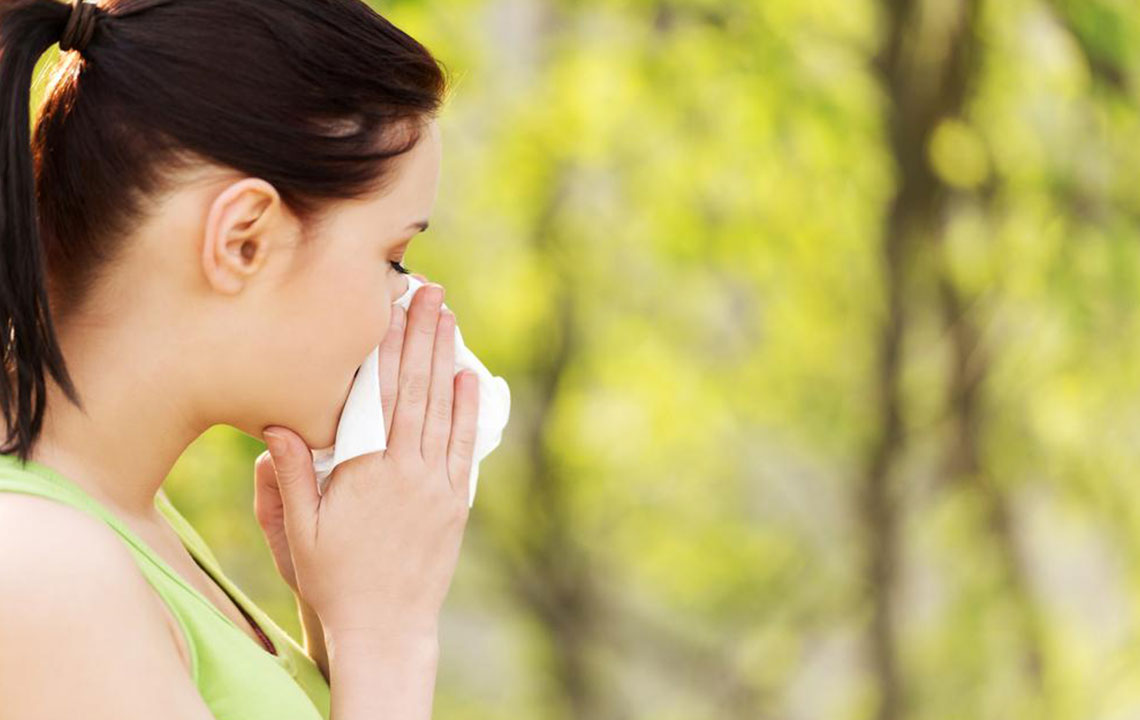Identify The Signs of Pollen Allergies
Allergies occur when the body responses in an irregular manner to an external substance. Most commonly allergies occur in case of certain food items. Medically, the immune system of human being becomes hypersensitive to some external factor. This condition is called allergy. Generally, allergies occur from food, fur, dust or pollen. The substance that causes an allergy is called an allergen.
Pollen allergies are found to be very common among the American population.

Signs of pollen allergies
Pollen is usually found to be harmless to the human body. However, people who are hypersensitive may be troubled by its presence in the atmosphere. Signs of pollen allergies can be identified, when the body starts producing chemicals to attack the pollen that may have entered the body. This chemical is called histamine. The mission of this chemical is to eradicate and remove the allergen from the human body.
The symptoms of most allergies are quite similar. So, it becomes difficult to identify the actual allergen as pollen, even by most health experts. Some indications or signs of pollen allergy are mentioned below.
- Uncontrollable or frequent sneezing
- An irritating cough
- Nasal congestion
- Red, itchy, or watery eyes
- Itchy throat
- Irritability
- Wheezing
Types of pollen
Pollen allergies signs can be of several kinds. It is important to pinpoint the actual pollen that may be affecting the patient. The different kinds of pollen that cause allergies in human are,
- Birch pollen
- Grass pollen
- Oak pollen
- Ragweed pollen
Though the signs of pollen allergy are not unique, these are the first indications and your doctor will conduct a range of tests to confirm the allergy. A skin prick test is the most common form of allergy test done to identify the allergen that might be affecting the patient. The skin of the patient is pricked on different areas of the body. Different types of allergens are inserted In these areas, to note the body’s reaction. In case the patient is allergic to any of these allergens, the patient is likely to experience redness, itchiness, or swelling of the pricked area within a couple of minutes. Only after having confirmed the actual nature of the pollen allergy, can the doctor suggest the right treatment?
Treatment for pollen allergy
After identifying the allergen as pollen, doctors can proceed with treatment for relief. Some forms of treatment for pollen allergy include:
Medication: Over-the-counter drugs and medicines are the most common approach to treat signs of pollen allergies. Pollen allergies signs include a stuffy nose, among others. Nasal sprays and decongestants help clear nose blockages. This allows the patient to breathe better. In case the drugs don’t help, the medical practitioner may prescribe stronger doses of medication that usually curbs the production of histamines in the body.
Allergy injections: in severe cases where medicines don’t work, doctors prescribe allergy shots. This includes injecting small amounts of the allergen into the body of the patient. With time, the body adjusts to the allergens, providing relief from pollen allergies signs. Over a period of time, most patients will experience complete relief from the symptoms of pollen allergies through this procedure.
Apart from these, doctors may also suggest some lifestyle changes that the patient can try to get some relief from pollen allergies signs. These may include staying indoors during windy days, wearing a dust mask to prevent pollen from entering the body, keeping doors and windows shut during days with a high pollen count and hiring external help to work and maintain the garden, particularly during peak allergy season.
Home remedies to fight signs of pollen allergy
Many people try to get some relief from the many disturbing symptoms of pollen allergy with the help of simple home remedies. Some of them have been noted to provide respite from pollen allergy symptoms in many patients. Some home remedies include:
- Using a neti pot or squeeze bottle to flush out nose blockages
- Inhaling steam to clear nose congestions
- Frequently washing clothes that you wear outside
- Using an air conditioner in your home and car & keeping windows shut
- Installing and using air purifiers or dehumidifiers in your home
- Vacuuming the rugs and carpets on a regular basis
- Trying certain herbs and extracts
Though doctors do not suggest these remedies as a treatment for pollen allergies, there is no harm in trying them as they have nearly zero side-effects.



